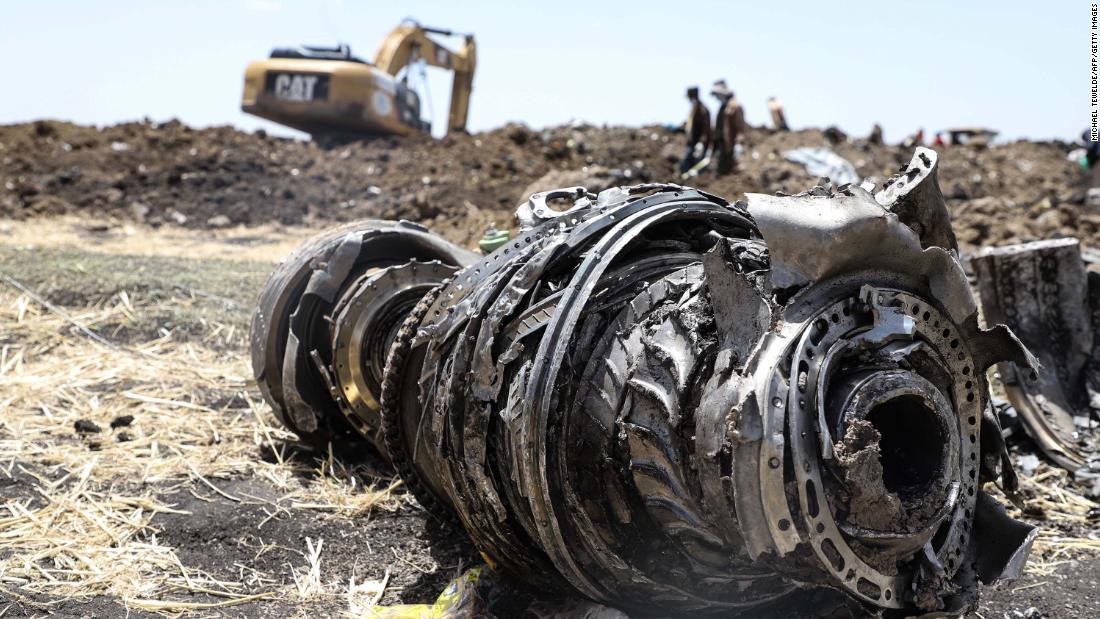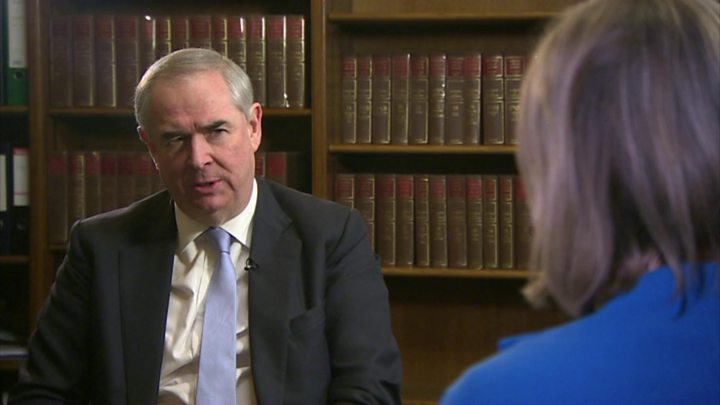LONDON — Theresa May has been on an epic losing streak. But this might be the biggest gamble of her political career. Her last-minute invitation to opposition leader Jeremy Corbyn to work together on Britain’s exit from the European Union stunned friends and foes — and signaled the prime minister’s desperation to deliver Brexit.
May’s dramatic swerve across her own red lines threatens to tear her beloved Conservative Party apart, as fellow Tories on Wednesday heaped scorn upon their leader for sitting down with an opponent they daily excoriate as a leftist menace.
Hard-line Brexiteers on May’s right are not only enraged that she seeks compromise with Corbyn, but they also fear she will agree with the Labour Party’s vision for an ultrasoft version of Brexit.
Boris Johnson, a rival of May’s and Britain’s former foreign secretary, complained, “Brexit is becoming soft to the point of disintegration.”
Johnson told Sky News: “For those of us who campaigned for Brexit and who believe in the opportunities of Brexit, it is bitterly disappointing.”
Corbyn and his Labour Party have pushed to remain closely aligned with European rules and regulations after Britain leaves the continental trading bloc.
He told party members that in his Wednesday session with May, he “raised the benefits of a customs union and close alignment to the single market.”
But those proposals would probably keep Britain from seeking its own independent trade deals or from stopping free-flowing European migration — May’s top aspirations for Brexit.
Corbyn called this first sit-down “useful but inconclusive.” He complained that May’s position had not changed as much as he had expected. He also said May “remained resistant” when we brought up the notion of a second referendum.
They plan meet again on Thursday.
The prime minister’s gambit, to reach across to Labour negotiators, shows how dire May’s position is. She is a weakened leader, chairing a fractious cabinet — filled with feuding “remainers” and “leavers” who aspire to replace her. And she presides over a party that remains as divided as ever on Brexit, almost three years after the June 2016 referendum on Britain’s membership in the E.U.
Depending on one’s vantage point, either the Conservative Party has failed May, or she has failed her party. The prime minister negotiated, mostly in secret, for two years with her E.U. counterparts, to produce a withdrawal agreement that has been defeated three times in the House of Commons — and voted down by large numbers of Conservative lawmakers.
These very same Tories tried to oust their prime minister in a no-confidence vote. They finally extracted a promise from May that if she ever gets a withdrawal approved by the House of Commons, she will resign before the next stage of Brexit trade talks gets underway.
Brexit Secretary Stephen Barclay blamed hard-line Brexiteers for the impasse. Barclay said Conservatives who refused to back May’s deal in the House of Commons essentially forced her to negotiate with Corbyn.
Barclay told BBC Radio that the only option left was to look for support from Labour, “because 35 of my own colleagues would not support the prime minister’s deal” in the last vote.
Barclay said the result will probably be a “soft Brexit or no Brexit at all.”
“It is undesirable, but it’s the remorseless logic of the numbers of the House of Commons,” he said.
May, who has fought hard to appease Tories and keep the Conservative Party together, now could preside over its implosion.
After Tory lawmaker Nick Boles quit the party in a dramatic resignation of the floor of the House, he complained May’s cabinet was filled with selfish cowards.
“None of them in my view has earned the right to lead the country after Brexit,” Boles told the BBC. “They are all compromised by their collective failure to lead, to unite, to get behind one plan, to sell that plan, to communicate.”
On Wednesday morning, Conservative lawmaker Nigel Adams left the government, saying he could’t agree that a deal “cooked up with a Marxist” — meaning Corbyn — was better than no deal at all.
A few hours later, Chris Heaton-Harris, a junior Brexit minister, also quit. He was the 30th minister to resign since May became prime minister in 2016. According to the Institute for Government, an independent think tank, May has had more resignations than any other prime minister in the past four decades.
In his letter to the prime minister, Heaton-Harris said he had wanted Britain to leave on March 29 — the original Brexit date. “Every time we seek an extension to this process we diminish faith in our political system,” he wrote.
Others tweeted or gave interviews voicing frustration.
Iain Duncan Smith, a prominent Brexiteer and former leader of the Conservative Party, told the BBC that he was “absolutely appalled” at the idea of getting the deal through with the help of Labour votes.
Jacob Rees-Mogg, a leading Brexiteer, tweeted, “Remainers take charge to thwart the voters.”
Fighting over Europe is nothing new for the Conservatives.
Such party divisions led to the downfall of several prime ministers, including David Cameron, John Major and Margaret Thatcher.
Cameron, May’s predecessor, called the 2016 referendum to appease the Euroskeptics in his party and to outmaneuver the U.K. Independence Party, which wanted Britain to exit the bloc. Cameron thought he could win and his party would finally stop “banging on about Europe,” as he memorably once said.
But since then, the banging has only grown louder.
Anand Menon, professor of European politics at King’s College London, said “an awful lot” of the Brexit drama “has been about keeping the Conservative Party together.”
He said there are intraparty tensions in both main parties, and “you can’t deny just how important that has been.”
European diplomats in Brussels said anger and frustration were their first reactions to May’s Tuesday announcement that she would seek another short delay of Brexit — even though she has not made the progress they have insisted on.
But after putting May’s speech on rewind and watching a few times — one diplomat compared it to a close interpretation of the Bible — attitudes started to soften. The reversal was complete after British officials passed the message to their colleagues Wednesday morning that May was prepared to hold European Parliamentary elections next month if she did not win approval of her divorce deal by next Wednesday, when E.U. leaders are set to meet.
That would pave the way to a much longer extension, with terms defined by the remaining 27 E.U. leaders. Although that move is by no means a given, the British appear to be betting that the E.U. would rather have them inside as reluctant members than outside, with no transition period or safety net, which would spark economic chaos.
If, during a longer extension period, the British come up with a Brexit plan acceptable to both sides, so much the better, the Europeans say, and the departure date could come sooner.
Read more
Frexit? Italeave? After watching Brexit, other European countries say: No, thanks.
What is Brexit? Britain’s political drama, explained.
Brits pretend they’re sick of Brexit. But truth is they’re obsessed.
Today’s coverage from Post correspondents around the world
Like Washington Post World on Facebook and stay updated on foreign news
Let's block ads! (Why?)
https://www.washingtonpost.com/world/europe/brexit-theresa-mays-party-is-in-a-rage-that-shes-negotiating-with-opposition-leader-jeremy-corbyn/2019/04/03/6dd6a704-561f-11e9-aa83-504f086bf5d6_story.html
2019-04-03 18:36:51Z
52780259434503




